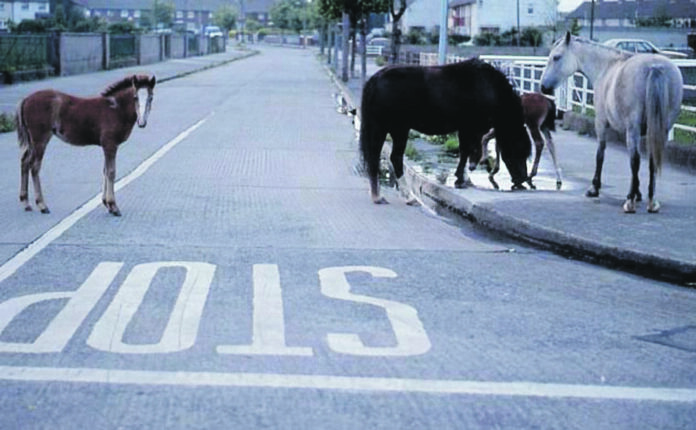
A TOTAL of 1,057 horses were seized across Limerick City and County between 2016 and 2023, according to figures released by the Department of Agriculture.
The information originated from a parliamentary question in which Sinn Féin TD Maurice Quinlivan asked Minister for Agriculture Charlie McConalogue in the Dáil for the number of horses that were seized or impounded for trespass or non-compliance with chipping laws in each county over the past eight years.
The figures, which are based on seizures by local authority area, show Limerick’s local authority impounded more horses than any other local authority in the past six years.
The first two years of the data in question, 2016 and 2017, saw Limerick City and County Council come second, in terms of seizures, only to South Dublin County Council.
In 2016, 209 horses were seized across Limerick, while the highest was noted in South Dublin with 266 seized or impounded.
The number of horse seizures in Limerick declined slightly in 2017 with 166 impounded in the city and county, again falling behind South Dublin with 227.
In 2018, Limerick rose to the top of the national rankings with 206 seizures, ahead of the Dublin City Council with 183 horse seizures, as South Dublin fell to 147.
In 2019, the number of seizures throughout the city and county almost halved, with the local authority confiscating 109 horses, standing above Kildare with 103.
Seizure numbers rose again in 2020, with Limerick’s local authority impounding figures standing significantly higher than the national average, with the 128 figure far above the region with the second highest number of seizures, Tipperary (76).
The number of horse seizures locally has steadily dropped in the years since 2021 with 91 reported that year, 89 in 2022, and 59 in 2023. However, as figures locally decline, the gap between Limerick and other local authority areas appears to widen, with Limerick at the top of national seizure figures by a good margin.
In just the last week, a brown and white male yearling horse was seized on the Roxboro Road in Limerick City under the Control of Horses Act 1996, with Limerick City and County Council in a public notice saying that the “identity of the owner or keeper of the horse is not known”.
Under the Control of Horses Act, local authorities may take a range of actions in relation to owners of horses who are in contravention of the act, including a horse’s prohibition in certain areas, the issuing of licences, and seizure.
According to the council’s website, horses seized in Limerick are detained for five days to allow owners to make themselves known and provide relevant documentation. After this point, if unclaimed, the animals are re-homed to a horse charity.
Agriculture Minister Charlie McConalogue told Deputy Quinlivan in the Dáil that the powers under the Control of Horses Act 1996 can be used in respect of straying horses, which includes horses put on land without the owner’s permission, including public land.
Local authorities, he said, may also prosecute offending owners.
The Minister said that the “Department of Agriculture, Food, and the Marine provides financial support to help local authorities” in the seizure of horses found to be in contravention of the act, however he added that “information about reasons for the seizures rest with the local authorities”.
“In dealing with breaches of equine identification legislation, the Department’s policy is to adopt a fair and proportional approach,” he said.
“Authorised officers engage with keepers to ensure that they understand their responsibilities and, where potential breaches of the legislation are identified, they generally provide an opportunity for non-compliant keepers to rectify the position within a specified timeframe.”
Deputy Quinlivan also asked the Agriculture Minister if steps had been taken to create a centralised database of compliance notices on owners who fail to chip their horses.
The Minister replied that his department “does not maintain centralised data in relation to the levels of non-compliances for failure to microchip equines and there are no immediate plans to do so”.


